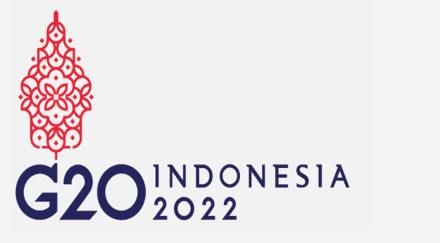Ahead of the G20 summit later this year, Indonesia’s Foreign Minister Retno Marsudi, without blaming any country, has urged Ukraine and Russia, the two conflicting parties, to seek a negotiated settlement to end the war in Ukraine.
He has rightly pointed out that the G20 is the right platform to “create an atmosphere that’s comfortable for everybody.” Indonesia resisted the Western pressure to disinvite Russia. In a smart move, it decided to invite Ukraine too for its summit meeting in November. President Zelensky, however, is unlikely to attend the Summit, since Russia’s President Vladimir Putin has confirmed his participation.
In the last few years, the G-20 was developing into a cohesive forum to discuss the challenges of global governance. But the war in Ukraine has divided its members into three broad groups.
“The first group is represented by the G7 members who are united in their opposition to Russia. The opposition group led by Russia, and backed willy nilly by China, is undeterred by Western sanctions and pressures. And finally, a majority of the non-Western states represents the third group which has refused to take sides,” explains Prof Rajan Kumar, School of International Studies, JNU.
These states have refused to join the sanctions imposed by the West. India, Brazil, Turkey, South Africa, Argentina and Indonesia have maintained a neutral position without supporting any side.
Why?
According to Prof Rajan Kumar, “These states are more concerned about the economic fallout of the Ukrainian crisis on global food and energy prices. Their economic stability is at stake and they seek an early resolution of the crisis. They consider the G20 to be an important forum to discuss these issues.”
The divisions within the G20 became obvious when many of the Western leaders boycotted a dinner where Russia’s foreign minister Sergei Lavrov was present. Sergei Lavrov also reciprocated by boycotting the addresses of Western foreign ministers.
Sharing his views with Financial Express Online, Prof Rajan Kumar says, “The G20 is a divided house today. It has become a victim of global polarisation spearheaded by the West. The G7 members appear disinterested in initiating a dialogue with Russia. They want other states to follow their decisions rather than making them part of the decision-making. The West is yet to come to terms with a new global reality where non-Western states are unwilling to abide by Western stratagems.”
Next year India will host G20 Summit
Stage is set for India to host the G20 summit next year either in October or November. All the Heads of State and Government are expected to be in India for the summit in New Delhi at the mega state-of-the-art summit venue at Pragati Maidan.
Besides the main summit, there will be 190 other meetings which will take place in different locations across the country during the yearlong presidency of India which will start in December this year.
Will India invite other countries besides the G 20 members?
Yes, according to sources, India is likely to invite other countries to participate in the summit.
For India it will be the first time hosting the summit. New Delhi is already in the G20 governance structure. This governance structure which has Italy, India and Indonesia is called the troika. It represents the previous, current and incoming presidencies of G20.
Indonesia hosting the G20 summit
In 2022, Indonesia, which is the current chair, is hosting the summit in Bali in November, and the focus is going to be on the ongoing war between Ukraine and Russia, the economic fallout of the war and the impact globally.
It is already clear that Indonesia has no plans to boycott Russia’s presence at the summit. The Russian President Vladimir Putin has already confirmed his presence.
EAM in Bali
Last week, external affairs minister Dr S Jaishankar held talks with his Indonesian counterpart Retno Marsudi focusing on G20.
On the sidelines of the G20 conclave in Bali, he also had bilateral meetings with his counterparts from Brazil, Mexico, Argentina, Saudi Arabia, the United Arab Emirates, South Africa and Senegal.
And the main issue that was discussed with all his counterparts from various countries was expanding the two way cooperation despite the changing geopolitical situations.
